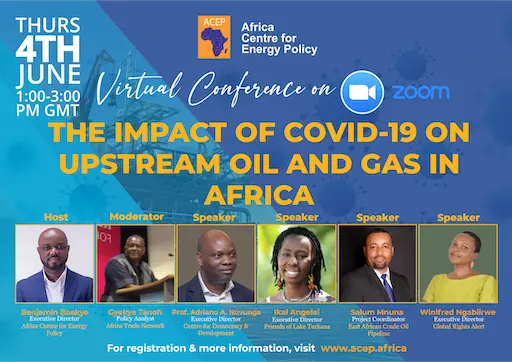

The outbreak of COVID-19 has significantly affected global economic growth and demand for oil. The effects of the pandemic on oil prices has been nothing short of devastating: they have reached their lowest levels since 1991 and currently stand at below $30 a barrel. This has posed an alarming threat to the cashflow of oil companies and revenue of African governments. Apart from South Africa, the continent’s biggest economies rely heavily on oil revenue to finance state budget, particularly social spending, and ensure macro-economic growth.
The pandemic has also occasioned cuts in exploration spending and the deferral of drilling plans. Wood Mackenzie estimates potential Capex cuts of 33% and as much as 40% Opex cuts across the region. The oil majors operating in the continent have all announced spending cuts: Shell has cut capital expenditure by $5 billion while seeking to reduce operating costs by an additional $3 billion to $4 billion over the next 12 months. Exxon has also cut spending by $10 billion this year with Chevron cutting expenditure by $6 billion. Similar cuts have been announced by BP ($3 billion) and Total ($5 billion). These expenditure cuts have the potential of delaying new discoveries, and development of discovered fields.
These oil majors were expected to make major final investment decisions (FID) this year or in the near future on multi-billion dollar projects in Africa. These include Shell’s Bonga South-West project, ExxonMobil’s Bosi, Owowo West and Uge-Orso projects, or Chevron’s Nsiko project. These projects are unlikely to see the green light this year, notwithstanding how severally close they are to FID. ExxonMobil-led Rovuma LNG project in Mozambique is a casualty of the impact of COVID-19 as Exxon postpones the green-light on the $30 billion project. Phase 1 of BP and Kosmos Energy’s Greater Tortue Ahmeyim Project in Mauritania and Senegal has also been impacted with the project expected to delay by 12 months. In Ghana, Aker Energy has postponed the development of its Pecan field, located offshore Ghana until further notice amidst the COVID-19 pandemic.
Other upstream projects that have been impacted by COVID-19 include: the Sangomar project offshore Senegal with partners exploring options to cut costs, delay expenditure or both, as well as Australia’s FAR which has also temporarily suspended plans for drilling offshore The Gambia. Moreover, South Sudan has suspended its first ever oil licensing round citing COVID-19 and global oil slump. Similarly, most licensing rounds that were set to confirm Africa as a global exploration frontier this year in countries like Senegal, Cote D’Ivoire, Gabon, Liberia, Uganda among others will most likely not live up to expectations.
The aforementioned effects of COVID-19 on Africa’s upstream sector require a conversation among governance actors on the continent to assess context specific impact in selected countries. Many of the investments that were expected have already been programmed into the medium-term fiscal estimates and required significant adjustments by countries. This webinar seeks to understand the nature and the scale of the problem to allow for tailored engagements on the way forward for Oil rich African economies.
Speakers:
Date: 4th June, 2020
Time: 1 : 00 – 3 : 00 PM GMT

